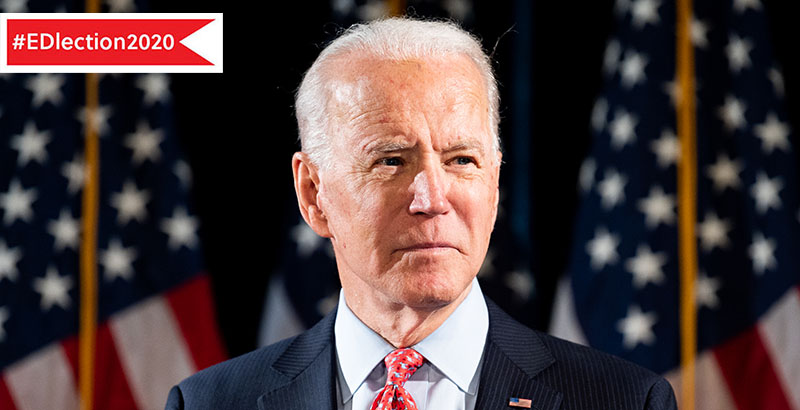Petrilli: Could Biden, Pelosi and McConnell Work Together? How Education Could Move Forward Under a Divided Federal Government

Now that the election is over — and yes, President Trump, it is over — all eyes are on the runoff elections in Georgia, given that they will determine control of the Senate for the first two years of the Biden administration. The conventional wisdom is that Republicans will win at least one of those seats, given that GOP turnout is usually higher in special elections. If that comes to pass, and Mitch McConnell remains in charge of the Senate (and Nancy Pelosi of the House) while Joe Biden occupies the Oval Office, what should we expect for K-12 education?
One real possibility is: very little. If McConnell decides to play obstructionist-in-chief, as he did when he promised to make Barack Obama a one-term president back in 2010, divided government may simply lead to further gridlock. We will still see another COVID-19 relief package, including money for schools — which McConnell himself has already said is a priority — but it will be on the smaller side and may mark the beginning of the end of bipartisan comity.
But — call me naïve if you like — there’s another option: Biden, Pelosi and McConnell could find ways to work together for the common good. (Imagine that!) With over 100 years of legislative experience among them, they know how to pull the levers of government and get bills across the finish line. They’ve worked together in the past. And given that they are all nearing the end of their careers, perhaps they will decide to set aside the country’s destructive hyperpartisanship and make some deals for the American people.
President-Elect Biden could make an opening bid for this sort of partnership by nominating someone for secretary of education who can command widespread support. That obviously means not Randi Weingarten of the American Federation of Teachers or Lily Eskelsen Garcia of the National Education Association, both of whom would struggle to earn any Republican confirmation votes in the Senate. On the other hand, a highly respected university president, such as University of Maryland-Baltimore County’s Freeman Hrabowski, would sail through and could set a positive tone moving forward.
Then there’s the next COVID relief bill. Here, it’s the Republicans who should show some flexibility, giving the green light to more spending than they might typically support — especially for children and young Americans. Priorities include dollars to aid in reopening schools, high-dosage tutoring to address learning loss, broadband access for the millions of American families still living without it and targeted student loan forgiveness for unemployed young adults and those doing public service, including teachers in high-needs areas. Republicans should certainly fight to make sure all these funds reach private schools and charter schools, too; if that condition is met, they should be willing to open their (er, our) wallets.
No, I don’t expect rainbows and unicorns. The Founders separated powers across the branches of government with the expectation that they would serve as a check on one another, but that, too, could help the cause of education reform. Take the fraught issue of charter schools. Even though urban charters continue to rack up strong evidence of effectiveness for Black and brown children, Biden took an aggressively anti-charter stance on the campaign trail, surely to please his teachers union supporters. It may fall to Senate Republicans, and a few moderate Democrats, to defend these Davids against the union Goliath, making sure charter startup funds aren’t eliminated in appropriations bills or that onerous provisions aren’t snuck into charter school grant competitions.
Indeed, vigorous Senate oversight of the Department of Education could check the Biden administration in a number of areas. On school discipline, for instance, it could encourage his appointees to find a compromise between Obama-era policies and the Trump ones — working to lower suspension rates of kids of color without resorting to a de facto quota system. They might even look for common ground on Title IX, picking up some of Secretary Betsy DeVos’s moves to allow accused students to defend themselves while still ensuring protections for those who face sexual harassment, or worse.
As New York Times columnist David Brooks wrote, “the other side is not going away. We have to dispense with the fantasy that after the next miracle election our side will suddenly get everything it wants. We have to live with one another.” So it is too on education policy. Neither side is going to get everything it wants. But by working together, we can help move education forward, together.
Michael J. Petrilli is president of the Thomas B. Fordham Institute and a visiting fellow at the Hoover Institution.
Get stories like these delivered straight to your inbox. Sign up for The 74 Newsletter

;)

